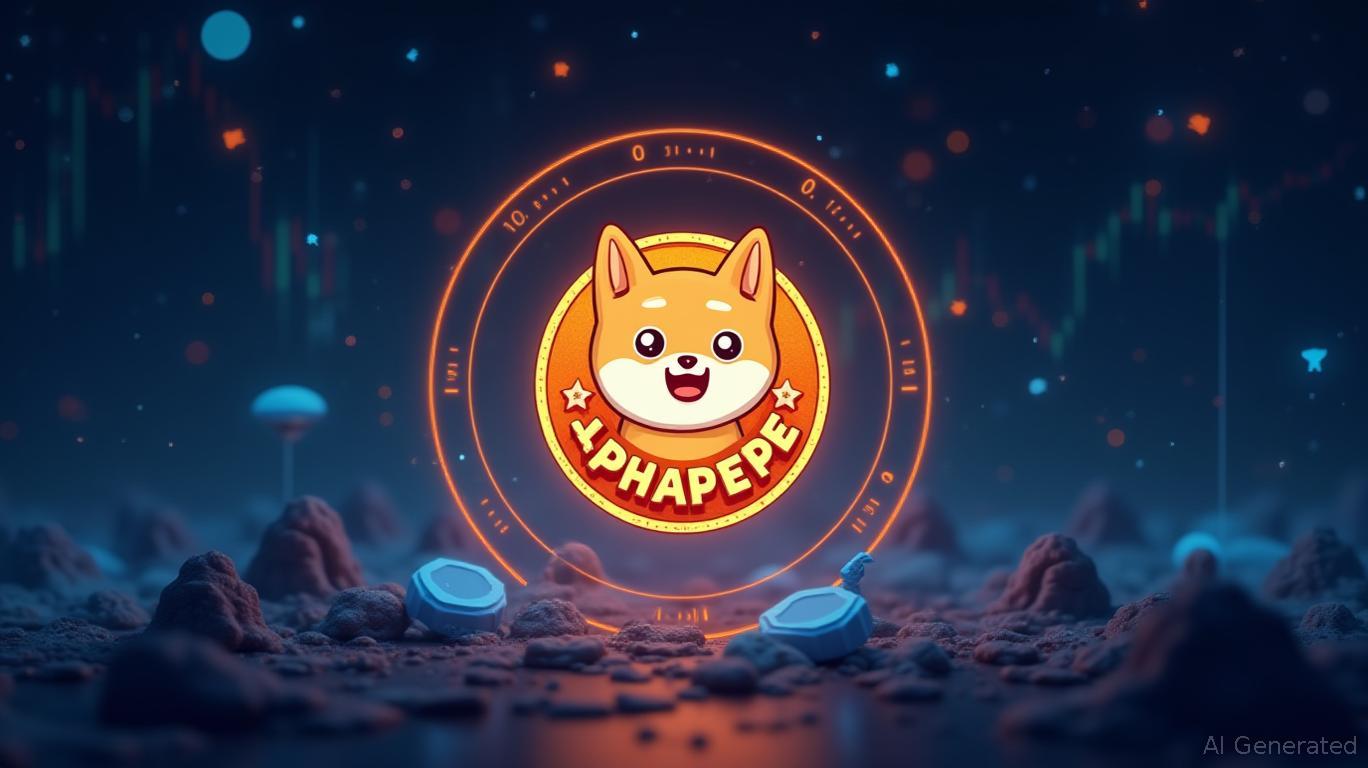Bitcoin News Today: The Changing Role of Bitcoin: Shifting from an Inflation Shield to a Gauge of the Dollar
- NYDIG analysis reveals Bitcoin's weak correlation with inflation, challenging its "digital gold" narrative as dollar fluctuations increasingly drive its price. - Technical indicators show bearish patterns and divergences, though institutional adoption and macroeconomic factors could still fuel a 2025 rebound. - Bitcoin and gold both respond to dollar strength/weakness rather than inflation, with combined market value nearing 133% of U.S. M2 money supply. - BlackRock's $100B Bitcoin ETF and retirement por
NYDIG's latest analysis suggests that Bitcoin, often promoted as a digital safeguard against inflation, may not fulfill that role as reliably as many investors believe. Instead, the cryptocurrency seems to react more strongly to changes in the U.S. dollar, a trend that could alter its attractiveness as broader economic conditions shift. These insights question a fundamental belief in the crypto community and reveal Bitcoin's increasing connection to mainstream financial markets, according to a
From a technical perspective, Bitcoin's price continues to show significant swings, with conflicting signals about its next move. Recently trading close to $113,000, Bitcoin has developed a "rising wedge" pattern on its weekly chart—a bearish indicator that could potentially drive the price below $60,000 soon, as noted in a

NYDIG's research further highlights the weak link between Bitcoin and inflation. Greg Cipolaro, the company's global research chief, pointed out that the relationship between Bitcoin and inflation metrics is "neither stable nor particularly strong," despite its reputation as "digital gold," as reported by Cointelegraph. Gold, the traditional inflation hedge, shows similarly inconsistent and sometimes opposite movements relative to inflation, according to Cipolaro. Both assets, instead, seem to be more influenced by real interest rates and the strength of the U.S. dollar. When the dollar declines, both Bitcoin and gold typically rise, though they do not move in tandem, according to a
This dollar-driven trend is becoming more significant as global monetary policies change. Jurrien Timmer from Fidelity pointed out that the combined market capitalization of gold and Bitcoin now equals about 133% of the U.S. M2 money supply, approaching record highs from 1980, as mentioned in a
Bitcoin's shifting position within the financial landscape is also altering its risk characteristics. Unlike gold, which has a long-standing reputation as a store of value, Bitcoin's price is becoming more closely linked to liquidity trends and institutional involvement. The rapid growth of BlackRock's Bitcoin ETF, now nearing $100 billion in assets, and the inclusion of crypto in retirement investment options, as reported by FXStreet, underscore this shift. However, with negative funding rates for Bitcoin perpetual contracts and rising open interest, short-term price swings remain a challenge for traders as Bitcoin straddles the line between speculative asset and economic indicator.
Disclaimer: The content of this article solely reflects the author's opinion and does not represent the platform in any capacity. This article is not intended to serve as a reference for making investment decisions.
You may also like
Dogecoin News Update: Will Dogecoin Bounce Back at $0.20 or Drop to $0.18?
- Dogecoin (DOGE) struggles to stabilize above $0.20, with bulls targeting $0.25-$0.33 resistance amid mixed market sentiment. - Open interest fell 62% to $1.88B, signaling reduced speculative activity and potential consolidation or deeper correction risks. - Technical analysts warn $0.20 is critical for bulls; failure could trigger selling pressure toward $0.18, while Ethereum's rebound may influence DOGE's trajectory. - Institutional shifts in crypto capital allocation and retail-driven meme narratives h

AlphaPepe: The Next Generation Meme Coin After Shiba Inu, Built on a Foundation of Security
- AlphaPepe (ALPE) emerges as Shiba Inu's potential successor, blending meme-coin virality with BNB Chain-based security features like audited smart contracts and locked liquidity. - Its presale attracted 3,000+ investors through compounding staking yields (0.3% daily) and a $330K+ funding round, outpacing DOGE and SHIB's legacy adoption strategies. - Analysts highlight ALPE's structured tokenomics over SHIB's capped growth, projecting 50×–100× gains if it captures 1% of SHIB's peak market cap through veri

Visa’s Growth in Blockchain and AI Drives Earnings Above Expectations, Offsetting Competition from Emerging Challengers
- Visa reported Q4 2025 net revenue of $10.7B, up 12% YoY, driven by cross-border payments and AI-powered services, exceeding analyst forecasts. - The company announced expanded stablecoin support across four blockchains and 16B Visa tokens, aiming to counter competition from Brazil's Pix and DeFi platforms. - Despite challenges from instant payment systems and decentralized finance, Visa maintains $618B market cap and $26B operating profits, with 14% dividend increase signaling confidence. - Analysts upgr

Fintech Companies Safeguard Intellectual Property as Hong Kong Requires Stablecoin Licenses
- Hong Kong's HKMA mandates licensing for all HKD-pegged stablecoins (local/foreign) under new 2025 framework. - Ant Group files "ANTCOIN" trademark for virtual currencies, aligning with regulatory timeline ahead of licensing. - Framework requires full reserves, audits, and AML protocols for stablecoin operators seeking HKMA approval. - JD, Fosun join fintech firms securing trademarks like "Jcoin," leveraging Hong Kong's digital asset innovation hub status. - Regulatory clarity supports Hong Kong's role as
